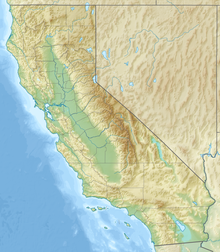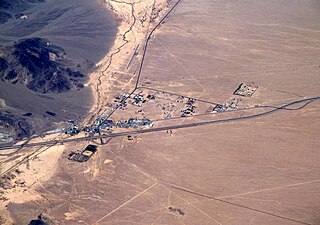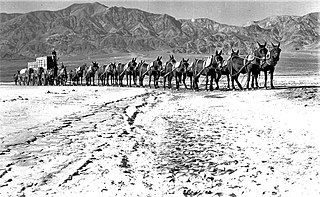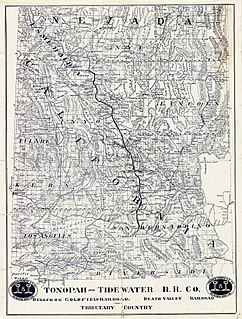| Smith Mountain | |
|---|---|
| Highest point | |
| Elevation | 5,915 ft (1,803 m) NAVD 88 [1] |
| Prominence | 1,593 ft (486 m) [2] |
| Listing | Desert Peaks Section List [3] |
| Coordinates | 36°01′05″N116°41′21″W / 36.0180573°N 116.6892424°W Coordinates: 36°01′05″N116°41′21″W / 36.0180573°N 116.6892424°W [1] |
| Geography | |
| Location | Death Valley National Park, Inyo County, California, U.S. |
| Parent range | Black Mountains, |
| Topo map | USGS, Gold Valley, CA |
| Climbing | |
| Easiest route | Cross country hike class 1 [3] |
Smith Mountain, 5,915 feet (1,803 m), is a peak in the Black Mountains of the Amargosa Range in Death Valley National Park in California.
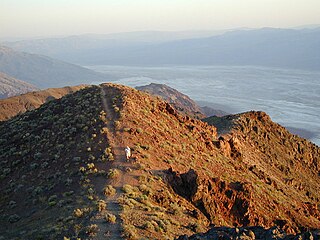
The Black Mountains are a mountain range located in the southeastern part of Inyo County, California, within southeastern Death Valley National Park.

The Amargosa Range is a mountain range in Inyo County, California and Nye County, Nevada. The 110-mile (180 km) range runs along most of the eastern side of California's Death Valley, separating it from Nevada's Amargosa Desert. The U-shaped Amargosa River flows clockwise around the perimeter of the range, ending 279 feet (85 m) below sea level in the Badwater Basin.

Death Valley National Park is an American national park that straddles the California—Nevada border, east of the Sierra Nevada. The park boundaries include Death Valley, the northern section of Panamint Valley, the southern section of Eureka Valley, and most of Saline Valley. The park occupies an interface zone between the arid Great Basin and Mojave deserts, protecting the northwest corner of the Mojave Desert and its diverse environment of salt-flats, sand dunes, badlands, valleys, canyons, and mountains. Death Valley is the largest national park in the lower 48 states, and the hottest, driest and lowest of all the national parks in the United States. The second-lowest point in the Western Hemisphere is in Badwater Basin, which is 282 feet (86 m) below sea level. Approximately 91% of the park is a designated wilderness area. The park is home to many species of plants and animals that have adapted to this harsh desert environment. Some examples include creosote bush, bighorn sheep, coyote, and the Death Valley pupfish, a survivor from much wetter times. UNESCO included Death Valley as the principal feature of its Mojave and Colorado Deserts Biosphere Reserve in 1984.
Contents
It is named after Francis Marion "Borax" Smith, of the local Pacific Coast Borax Company enterprise. [4]
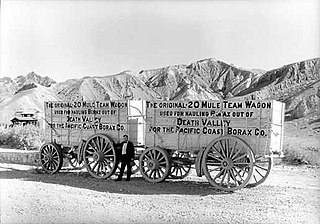
The Pacific Coast Borax Company (PCB) was a United States mining company founded in 1890 by the American borax magnate Francis "Borax" Smith, the "Borax King".
